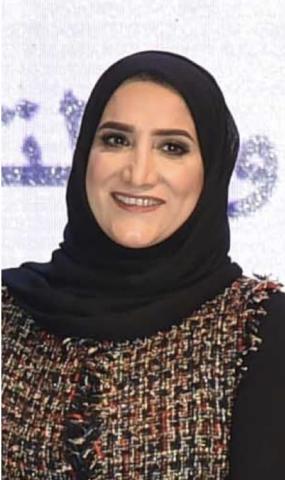Interview with longlisted author Mona al-Shammari
21/03/2022

When did you begin writing The Maids of the Shrine and where did the inspiration for it come from?
After the novel No Music in Al Ahmadi, which was set in Al Ahmadi in the desert, a town built by the English in Kuwait after the discovery of oil, opposite Fahaheel on the sea, I thought a lot about delving again into the geography of Kuwaiti identity, meaning, being open to the Other, finding a new way of showing the cultural heritage and philosophy of place. There are neglected places and cities in Kuwaiti literary fiction. I ended up choosing the only inhabited island in Kuwait and decided that this island - Failaka - would be my new fictional location which I would work on. The place itself, with its nature, was the first thing which prompted me to write. Failaka has a particular, unique history and diverse, interconnected human identities. These identities are at the same time in dramatic conflict with the essence and identity of the place. I know many magical, thrilling stories about the existence of the shrine of Al Khadr on the island. I actually began writing in 2019, working out the general structure of The Maids of the Shrine and writing notes about the place, characters; calmly and deliberately constructing the new novel.
Did the novel take long to write and where were you when you finished it?
It took two full years to write. The first year was spent doing historical research and gathering information, meeting researchers and experts on the place, and friends who have distant, warm childhood memories of the island. I also read historical sources about Failaka and its relationship with its surroundings.
In the second year, I concentrated on writing and working on drafts, letting my imagination run wild on paper and the keyboard, until The Maids of the Shrine appeared. The period of isolation at home in the months of the spread of the corona pandemic enabled me to dedicate time to reading and revising the novel more than once, until I decided to present it to Dar Al Saqi. At that time, life outside had been stalled and halted in the isolation of fear of corona, but my head was buzzing loudly with the life of the heroines of The Maids of the Shrine, a buzzing which never stopped or grew quiet.
How have readers and critics received it?
The Maids of the Shrine has certainly been warmly welcomed by readers who were hungrily waiting for my next novel, while I had been busy with several dramatic screenplays I had written for Arabic channels and online platforms, especially since I am not a prolific literary writer. More than one critic has spoken to me after reading the novel and we have discussed it. Book fairs have given it a good reception and copies have sold out at important fairs such as the Cairo International Book Fair. The way it is being read and reviewed on websites and by book clubs is extremely satisfying.
What is your next literary project after this novel?
In fact, there are three ideas for novels which have captivated me and are pressing upon me. However, what stops me from starting to write is the need to do historical research into some aspects, to consult several documents, sources and books dealing with particular epochs. This is what I usually do when I write fiction or drama. I do not write in a vacuum, nor do I depend solely upon what my imagination can bring up, to immerse myself in telling a story. For this reason, I am a painstaking writer who needs a long time to craft her work and build a dramatic structure, in order to produce a worthy work which will find its place and be welcomed by readers. As for the desire to write a novel every year, I am not interested in annual publishing. I don’t think about it.
